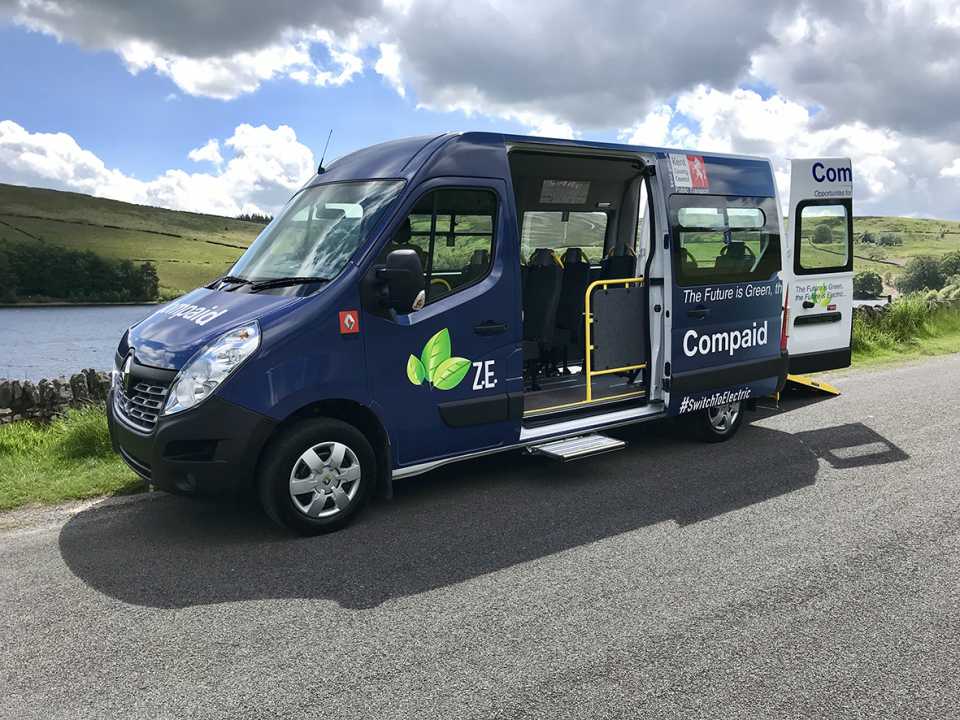-

Community Transport & the Pathway to Net-Zero
-
8th June 2023
-
-
by Josiah Deakin
The pathway to net zero is an essential one in which we all have a part to play, and this is particularly the case for the Community Transport sector. CT organisations across the UK are already acting as a form of modal shift combining multiple journeys into one and reducing the need for private car ownership.
Now a few weeks on from the Inclusive Transport & Community-led Solutions Conference held in England, it is important to reflect on the constructive discussions that were had and the suggestions that emerged, specifically, around the interactions between the Community Transport (CT) sector and the net zero agenda.
As we discovered during the net zero breakout session at the conference, many CT organisations are at the forefront of transitioning to net zero by integrating electric vehicles into their service delivery and even researching potential hydrogen options.
One of such CTs is the Community Transport Sussex driving the decarbonisation cause, with future projects such as an electric community car club. Matt Roberts, CEO of Community Transport Sussex (CT Sussex) and guest speaker, who had such a depth of knowledge about the move to net zero shared that passengers are quite pleased with the ride in electric vehicles, commenting on the “smooth comfortable ride”.
CT Sussex, as with many CT organisations, demonstrates that it is possible to deliver a successful passenger service using electric vehicles.
Workshop participants did, however, acknowledge that the transition to Net-Zero does come with challenges. These include insufficient electric vehicle infrastructure, the lack of ZEV supply, and higher vehicle costs.
It will require the work and support of the government and funders to overcome these significant challenges. The Community Transport Association (CTA) remains committed to identifying and highlighting these challenges to the relevant authorities.
The workshop also looked at how net-zero policy can interact with the CT sector and the importance of ensuring that providers are aware of these policies.
There was a specific focus on clean air zones/low emissions zones that have been created in locations all around the country. Many clean air zones will or do have an impact on the CT operators in some way, whether through investment or potential charges if required emission levels aren’t met. We identified in the workshop the importance that the CTA and operators are aware of such policies and that they get involved in the policy process where they can.
CTA has been representing its members in net zero policymaking discussions, evident in our response to the recent consultation on the proposed policy to end the sale of zero-emission cars and vans. This consultation focused on specific sections of the policy rather than the whole concept. You can read the CTAs response here.
It was great to see throughout the session that there was not just an acknowledgement that action was needed on meeting net zero but an eagerness among workshop participants to act on this matter. We know the CT sector is forward facing, and there is much ambition that exists to transition to net zero, but we recognise that this is something that needs to be done fairly, taking into account the unique challenges of the sector and in many cases, it will require investment and support. CTA will continue to advocate for such considerations as we engage with the government on policies aimed at achieving net zero.
-
-
- About CTA
- /
- CTA Membership
- /
- CTWeek24
- /
- Policy & Research
- CommunitySolutions: A Manifesto for the Next UK General Election
- Our Campaigning Guide for Community Transport
- Our Policy Work
- Join Our Mapping England Passenger Survey
- Aneurin Bevan Transport to Health
- Climate Action in Scotland
- conneCTing England Programme
- Mapping Scotland Project
- Mapping Wales
- Mapping England
- Tackling Loneliness in England
- Healthy Communities in Scotland
- /
- Advice & Support
- /
- Training
- /
- Events
- /